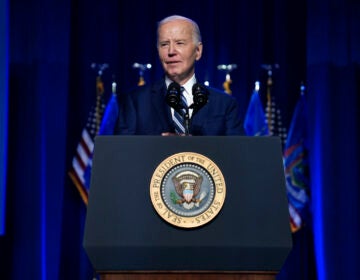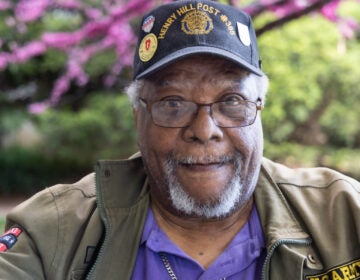Local food truck owner seeks support to upgrade equipment, start educational programming
Remove power generators from a cubby. Use them to run a mobile food truck. Run out of power after five hours. Go to gas station and fill a canister up. Return to the food truck. Add gas to power generators. Unplug a couple of appliances. Run out of power again.
This is the process Zea May’s food truck owner Sue Wasserkrug has been going through for the past year — but she’s asking the community to help change that with an online fundraising project.
Wasserkrug debuted her food truck, which specializes in Native American-inspired cuisine, nearly a year ago. She serves her food at Love Park on occasion but partakes a lot of local festivals, such as the farmer’s market last summer at Weavers Way.
Wasserkrug said she’s also gotten support for her program through the Philly Mobile Food Truck Association — a new organization formed in December of 2011 as a food truck social and political group.
She bought a second-hand truck from a Philadelphia couple who previously used the truck in the Virgin Islands.
The shell, Wasserkrug says, is an old postal service truck. And the appliances — like the refrigerator, the griddle and deep fryers, are all powered off two generators stored in a cubby inside the truck. But that’s not typically how food trucks are powered. Wasserkrug says it’s usually one generator built into the truck that turns on with the flip of a switch.
Her impromptu system works fine, but Wasserkrug said it’s kept her from attending day-long festivals. Love Park — which has power outlets she can use — and short events have been no problem, but her current system gets tiring.
“It’s physically difficult to take them out and put them in…whereas these other generators you flip a switch,” said Wasserkrug.
To fund a new generator, Wasserkrug has set up a way for supporters to make donations via a website called Lucky Ant. Donators can get rewards based off how much they donate. The catch is that Wasserkrug has to hit her goal of raising $4,000 by April 21 or she’ll get none of the funds folks have pledged.
While a generator will likely cost her around $6,000, Wasserkrug said she intends to sell her two small generators to fund the rest of her project.
“I definitely put the word out and have gotten very good response from the community,” she said, adding that her funds have reached $1,670.
If she can’t raise the money, Wasserkrug it won’t make-or-break her business. It’ll simply limit her.
The next step
Her next mile marker, if she can get the generator, is to create Native American educational programs, an aspect of her business she had in mind since she started. She was an anthropology major in college and focused on Native American cultures out of interest.
“I sort of envisioned it as a small café with food and educational programs and very small exhibits,” she said. “I had to start somewhere so I decided to start with the truck.”
Having a food truck has helped her reach more people. She oftentimes has to explain the importance of the food as well as the name of her truck, which is the scientific name for corn.
“That’s the nice thing about this truck,” she said. “I could take it to events and do a program.”
Donations to help Wasserkrug buy a generator for her truck can be made here.
WHYY is your source for fact-based, in-depth journalism and information. As a nonprofit organization, we rely on financial support from readers like you. Please give today.




